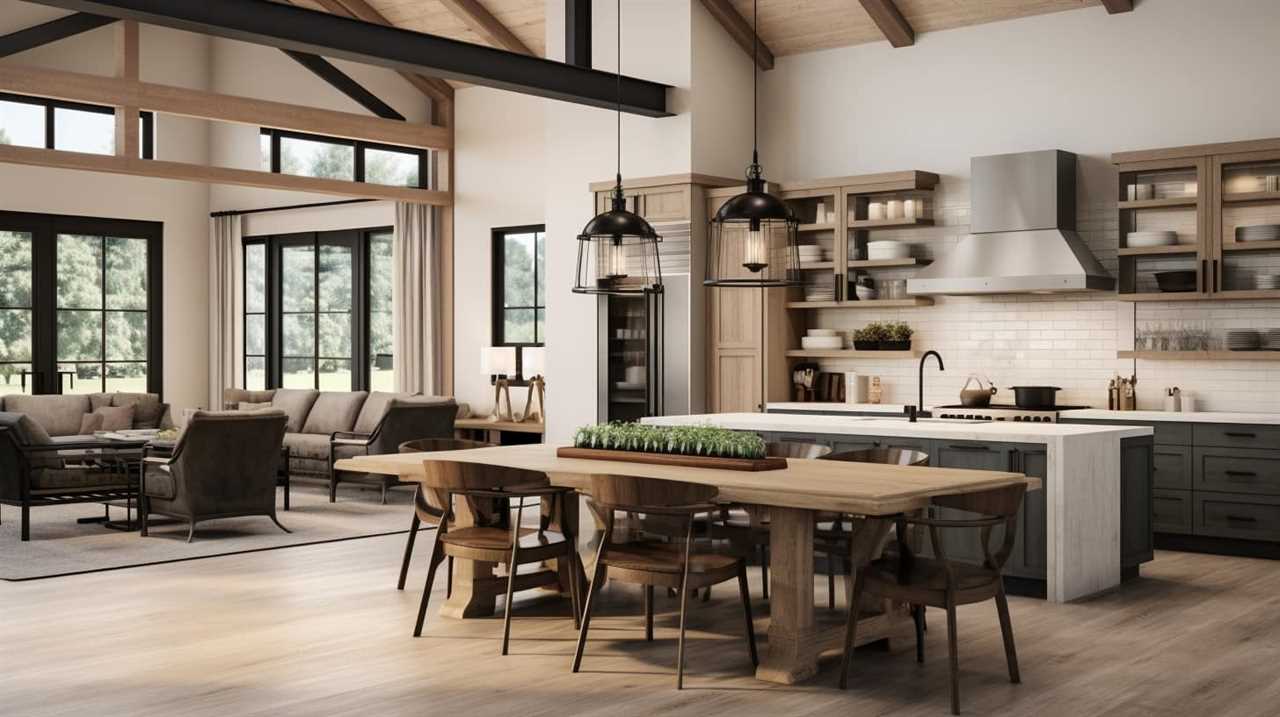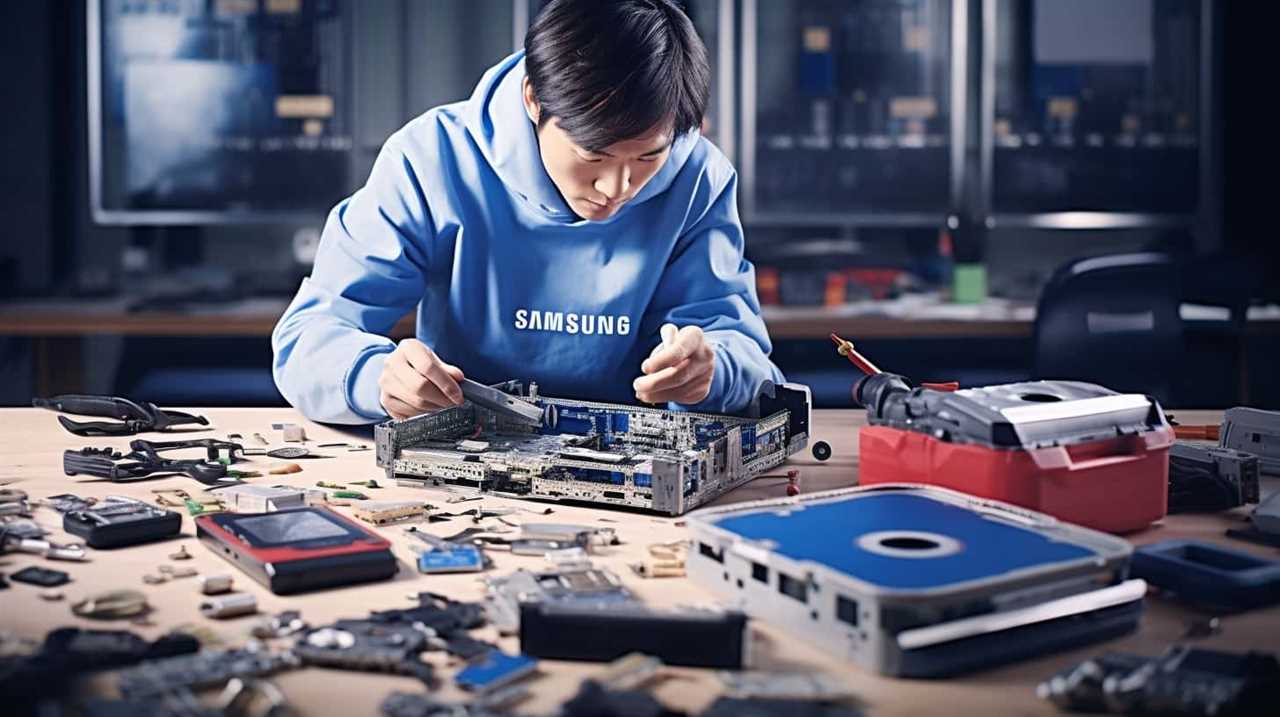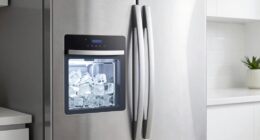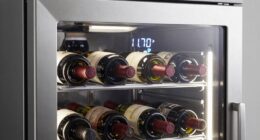Do you ever feel like replacing appliances in an apartment is as challenging as unraveling a tangled web of wires?
Well, fear not! In this article, we will guide you through the process of understanding regulations, checking with your landlord, exploring temporary modifications, considering energy efficiency, and even hiring professional installation services.
So, if you desire mastery in navigating the world of apartment appliances, read on!
Key Takeaways
- Check the lease agreement or consult the landlord to determine if appliance changes are allowed.
- Review local building codes and regulations to understand any limitations on appliance changes.
- Communicate with the landlord to discuss intentions of changing appliances and inquire about any restrictions or requirements.
- Consider temporary modifications or easily removable appliance accessories to improve functionality and comply with restrictions.
Understanding the Regulations
First, let’s familiarize ourselves with the regulations surrounding appliance changes in an apartment. When exploring legal requirements, it’s essential to understand that changing appliances in an apartment is subject to certain rules and restrictions. These regulations are put in place to ensure the safety and well-being of the tenants and the property itself.

Before making any changes, it’s crucial to consult the lease agreement or the landlord to determine if appliance changes are permitted. Some leases may have specific clauses that prohibit or restrict alterations to the existing appliances. Additionally, local building codes and regulations may also impose limitations on appliance changes.
Understanding safety considerations is another crucial aspect when changing appliances. It’s important to ensure that any new appliance meets safety standards and is installed correctly. Faulty installations or appliances can pose significant risks, such as electrical hazards or fire hazards.
Checking With Your Landlord
Before making any changes to the appliances in your apartment, it’s important to check with your landlord to ensure that it’s allowed. This step is crucial to avoid any legal implications or potential conflicts with your lease agreement.
Here are three key points to consider when checking with your landlord:

- Review your lease agreement: Carefully examine your lease agreement to determine if there are any specific restrictions or guidelines regarding appliance changes. Some landlords may have strict policies in place, while others may be more flexible and open to negotiating options.
- Communicate with your landlord: Reach out to your landlord and discuss your intentions of changing appliances. Explain your reasons for wanting to make the changes and inquire about any potential restrictions or requirements. This conversation will allow you to negotiate options and seek clarification on any concerns.
- Request written permission: It’s advisable to request written permission from your landlord before proceeding with any appliance changes. This will serve as a legal safeguard and ensure that both parties are on the same page. Keep a copy of the written approval for your records.
Exploring Temporary Modifications
To explore temporary modifications, we can consider alternative options for adapting appliances in our apartment. While appliance restrictions may limit our ability to change appliances permanently, there are still temporary modifications we can make to improve functionality and efficiency.
One option is to use appliance accessories that can be easily added and removed. For example, a portable dishwasher can be connected to the sink when needed and stored away when not in use.
Another option is to use countertop versions of appliances such as ovens, stoves, and laundry machines. These compact versions can be placed on existing countertops and provide the same functionality as full-sized appliances.
By exploring these temporary modifications, we can enhance our apartment living experience while still abiding by any appliance restrictions.

Now let’s transition into the next section and discuss the importance of considering energy efficiency in our temporary modifications.
Considering Energy Efficiency
When considering energy efficiency in apartment appliances, there are several key points to keep in mind.
First, energy-saving appliances offer numerous benefits, including reduced utility bills and a smaller environmental footprint.
Second, it’s important to consider the cost of upgrading to energy-efficient appliances, as they may require a larger upfront investment but provide long-term savings.

Energy-Saving Appliance Benefits
Energy-saving appliances offer numerous benefits due to their energy efficiency. When considering upgrading options for your apartment, it’s important to take into account the environmental impact of your appliances. Here are three key benefits of energy-saving appliances:
- Reduced energy consumption: Energy-saving appliances are designed to use less electricity or water compared to traditional appliances. This not only lowers your utility bills but also reduces the demand for energy, resulting in a smaller carbon footprint.
- Environmental preservation: By choosing energy-saving appliances, you contribute to the preservation of natural resources. These appliances are designed to minimize waste and use renewable energy sources whenever possible, helping to protect the environment for future generations.
- Enhanced performance: Despite their energy efficiency, energy-saving appliances don’t compromise on performance. They’re designed to provide the same level of functionality and effectiveness as traditional appliances, ensuring that you can enjoy the same benefits while saving energy.
Cost of Energy-Efficient Upgrades
Upgrading to energy-efficient appliances in an apartment can come with a significant cost. However, the long-term benefits and savings on energy bills often outweigh the initial investment.
When considering energy-efficient upgrades, it’s important to evaluate the potential energy savings and the payback period for each appliance. While the upfront cost may be higher, energy-efficient appliances consume less electricity and can result in substantial savings over time.
Additionally, some utility companies offer rebates or incentives for purchasing energy-efficient appliances, further reducing the overall cost.

Temporary modifications, such as using energy-saving light bulbs or installing programmable thermostats, can also contribute to energy efficiency without requiring a large financial investment.
It’s crucial to weigh the initial cost against the long-term benefits of energy-efficient upgrades to make an informed decision.
Hiring Professional Installation Services
We can hire professional installation services for changing appliances in an apartment. Hiring professionals for appliance installation ensures that the task is done correctly and safely, reducing the risk of damage or injury. Here are three reasons why hiring professional installation services is beneficial:
- Expertise: Professional installers have the knowledge and experience to handle various appliances, ensuring that they’re installed correctly and efficiently.
- Warranty protection: Many appliances come with warranties that require professional installation. By hiring professionals, you can ensure that the warranty remains valid, protecting you from potential repair costs.
- Time-saving: Installing appliances can be time-consuming, especially for those without experience. Hiring professionals allows you to focus on other tasks while the experts handle the installation.
When it comes to changing appliances in an apartment, it’s worth considering hiring professionals instead of attempting a DIY installation.

Weighing the Pros and Cons
Before making any decisions, it’s important to carefully consider the advantages and disadvantages of changing appliances in an apartment.
Temporary modifications to appliances can provide several benefits. One advantage is the ability to personalize the space according to your needs and preferences. By replacing outdated or inefficient appliances with energy efficient upgrades, you can reduce your energy consumption and save money on utility bills. Additionally, modern appliances often come with advanced features that can enhance your daily life, such as smart technology and improved performance.
However, there are also some drawbacks to consider. Modifying appliances may require permission from the landlord, who may have specific rules regarding modifications. Moreover, the cost of purchasing new appliances can be a significant investment.
Therefore, it’s crucial to carefully weigh the pros and cons before deciding to change appliances in an apartment.

Frequently Asked Questions
Are There Any Restrictions on Changing Appliances in an Apartment for Disabled Individuals?
Yes, there may be restrictions on changing appliances in an apartment for disabled individuals. Accessibility requirements must be considered and discussed with the property management to ensure compliance and proper accommodations.
What Are the Potential Consequences if I Change Appliances in My Apartment Without Informing My Landlord?
There may be potential legal issues and potential damage to property if we change appliances in our apartment without informing our landlord. It is important to consider the consequences before making any modifications.
Can I Install a Portable Dishwasher in My Apartment?
Installing a portable dishwasher in our apartment may be possible, but we should consider the terms of our lease and discuss with our landlord. Replacing a refrigerator may require their approval as well.
Are There Any Specific Energy-Efficient Appliances That Are Recommended for Apartments?
There are specific energy-efficient refrigerators and smart appliances that are recommended for apartments. These appliances offer numerous benefits, such as reduced energy consumption and enhanced functionality.

What Are Some Alternatives to Hiring Professional Installation Services When Changing Appliances in an Apartment?
When changing appliances in an apartment, there are alternatives to hiring professional installation services. DIY appliance installation tips can help you navigate the process and save money while ensuring a successful outcome.
Conclusion
In conclusion, before making any changes to the appliances in your apartment, it’s crucial to understand the regulations set by your landlord or property management. Consulting with them and exploring temporary modifications can provide temporary solutions.
Additionally, considering energy-efficient appliances can benefit both the environment and your monthly bills. If you decide to make any changes, hiring professional installation services ensures a safe and efficient process.
Remember, it’s always better to be cautious and well-informed when making modifications to your apartment. As the saying goes, ‘Measure twice, cut once.’










